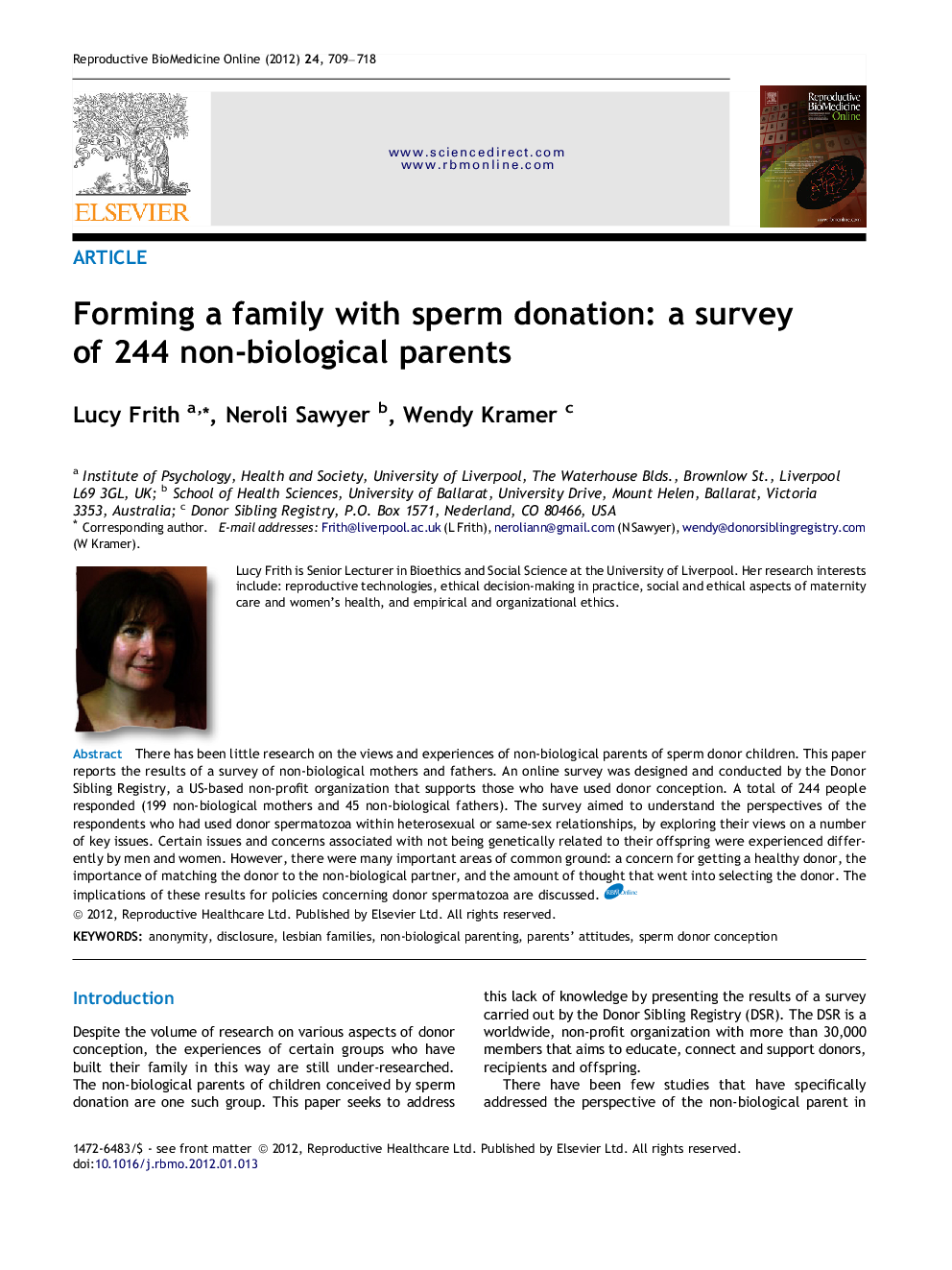| Article ID | Journal | Published Year | Pages | File Type |
|---|---|---|---|---|
| 3970994 | Reproductive BioMedicine Online | 2012 | 10 Pages |
There has been little research on the views and experiences of non-biological parents of sperm donor children. This paper reports the results of a survey of non-biological mothers and fathers. An online survey was designed and conducted by the Donor Sibling Registry, a US-based non-profit organization that supports those who have used donor conception. A total of 244 people responded (199 non-biological mothers and 45 non-biological fathers). The survey aimed to understand the perspectives of the respondents who had used donor spermatozoa within heterosexual or same-sex relationships, by exploring their views on a number of key issues. Certain issues and concerns associated with not being genetically related to their offspring were experienced differently by men and women. However, there were many important areas of common ground: a concern for getting a healthy donor, the importance of matching the donor to the non-biological partner, and the amount of thought that went into selecting the donor. The implications of these results for policies concerning donor spermatozoa are discussed.There has been little research on the views and experiences of non-biological parents of sperm donor children born from assisted conception. This paper reports the results of a survey of 244 non-biological mothers and fathers. An online survey designed by the Donor Sibling Registry, a US-based non-profit organization that supports those who have used donor conception, was conducted. Two hundred and forty four people responded (199 non-biological mothers and 45 non-biological fathers). The survey aimed to understand the perspectives of these parents within heterosexual and same-sex relationships who had used donor insemination in greater depth by exploring their views on a number of key issues. Certain issues and concerns that related to not being genetically related to their offspring were experienced differently by the men and women. However, there were many important areas of common ground: a concern for getting a healthy donor, the importance of matching the donor to the non-biological partner and the amount of thought that went into selecting the donor. The implications of these results for policies concerning donor insemination will be discussed.
